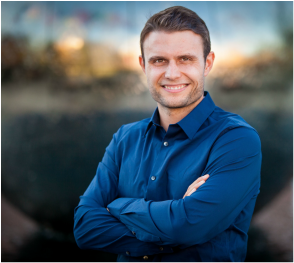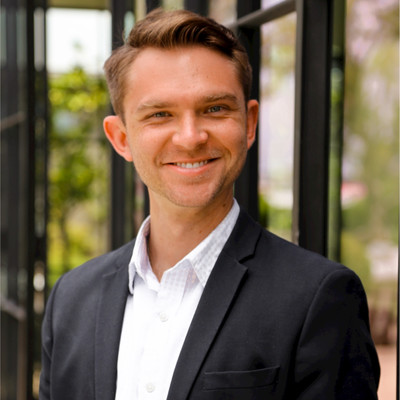Taking off the blindfold
I strode into the interview room with poise and intention. My eyes were fixed, soft, and warm as I met the interviewer and made my way into the interview room. As I lowered my body into my seat, I slowly looked around the room with curiosity, blinking back at a snail’s pace to meet the interviewer with a half-smile.
Four years prior I was in Honolulu for New Year’s. I was with my family, meandering along the pristine coastline in Waikiki. As we walked, I began to wonder if a memo had gone out to beautiful women everywhere to congregate there that night.
My brain started rapidly churning, trying to come up with a natural way to meet someone there. But it was a lost cause. Not only did I have that weird “mom’s watching” feeling, I realized I knew very little about how to approach and connect with strangers. In that moment I vowed to make a change. I needed an education in social intelligence: an education that, unfortunately, only few of us ever actually receive.
As with any living creature, humans are constantly interacting with one another. If we are going to be social – which we are unless we live in a dark cave the rest of our lives – then it seems sensible to me to understand how to create relationships from a place of abundance. It seems wise to know how to initiate any conversation, anytime, anywhere, with anyone, and learn how to move on after rejection. It is increasingly important in an age of self-criticism to understand how to improve oneself whilst showing compassion and thoughtfulness for the efforts made.
Jaunty has been an education in all of this and more. No longer am I playing pin-the-tail on the donkey with social interactions, aimlessly trying to hit a moving target. The blindfold is off; my actions are simultaneously calculated and intentional, playful and spontaneous.
During Jaunty’s six week course, I gained skills that have given me external success. However, I believe Jaunty’s true power lies in the internal shift created. What blows me away on a daily basis is that the more I practice the suggested behaviors, the greater my own self-image becomes. Behavior wags the tail of feelings. Whether you are anxious, excited, sad, mad, happy, sleepy, or any other feeling (or dwarf) the principles outlined at Jaunty can help now, so long as you work at it slowly, steadily, and persistently. Over time, initial unruly thoughts and feelings are likely to change or, even better, they won’t matter.
My mind, like any properly functioning one, tends to want to control and predict events and avoid discomfort. The problem is that the information it’s telling me is outdated and not as problematic as it thinks. Unlike the cavemen days, a botched approach is not life-threatening. Even if someone told me to go eat dirt, life would go on. But this rationality rarely wins the battle with feelings; here, survival instincts have the upper hand.
At Jaunty, one of the most basic, yet fundamental, lessons we learn is slowing down. In speech, movement, eye scanning, everything. I soon realized that slowing down what I did in the external world slowed down what happened inside me. Sauntering over to someone as if moving through honey makes it a lot more difficult to be anxious during the approach. The “threat” is perceived differently, likely because I am moving as if there isn’t any.
My initial desire to improve my romantic interactions has now morphed into a skill-set that is applicable in any social situation. I had a wonderful interview that morning and, more importantly, developed an authentic connection with the interviewer whom I am grateful to now call boss. It appears that every day I am getting better at portraying the strongest, most sincere version of myself – what more could I ask for?


